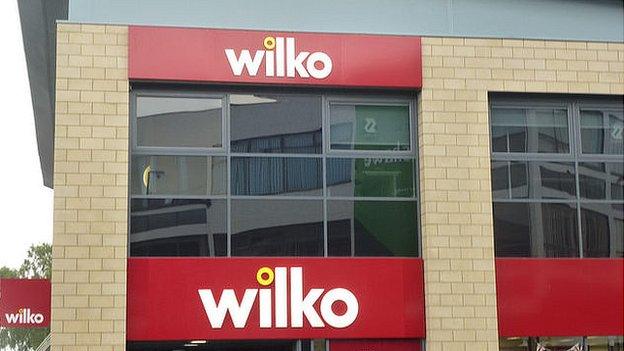Wilko weekend rota system: What's behind staff dispute?
- Published
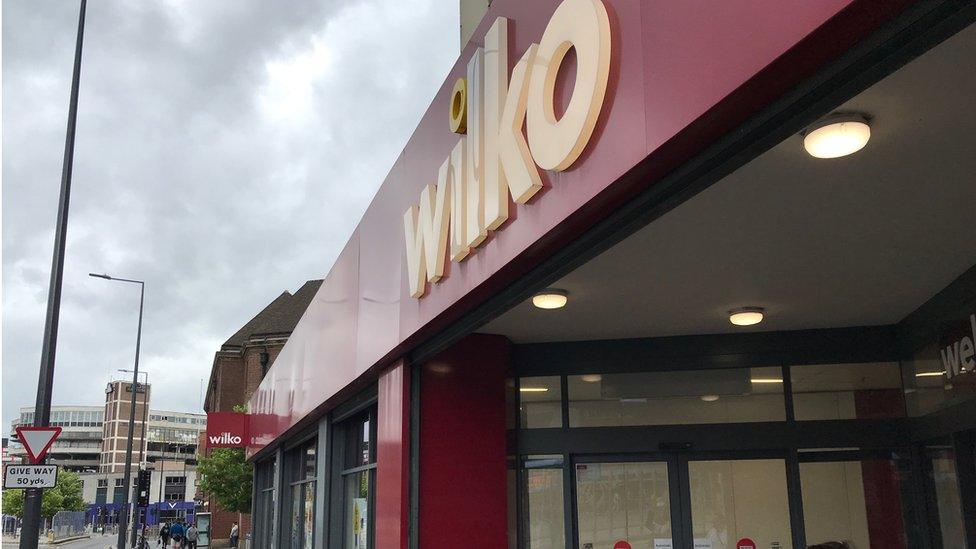
Union bosses said workers were "tired and worn out" by the lack of free time
For nearly 90 years, Wilko has been a fixture in high streets across some parts of the UK. The family-run business - known for many of those decades as Wilkinson's - sells toys, sweets and household goods at affordable prices. But about 1,800 workers could go on strike over "brutal" weekend working practices.
As the GMB union and management meet to discuss ways to avoid industrial action, BBC News looks at the issues facing workers and the retail chain.
Talk to shoppers and you will find a lot of affection for Wilko.
"It's a well established brand, it's been on the High Street for years," regular shopper John Denholm said.
The hardware chain has been run by the Wilkinson family since 1930 - something of an anomaly in an age of private equity ownership and corporate buy-outs.
But recently the Wilko story has taken a startling turn.
Why are some staff angry?

Rob Abbott left his job at Wilko because he says he couldn't spend time with his family
Staff complaints about a new weekend rota system led to 1,800 workers agreeing to strike at the chain's two distribution centres in Worksop, Nottinghamshire, and Magor, Monmouthshire.
One worker, who wanted to remain anonymous, said she felt "like a zombie" most of the time.
She said she had worked all but two Saturdays since March and it was getting in the way of seeing her family as she did not get two days off together.
"I felt like quitting at one point but why should I have to give up my job after almost two decades?" she asked.
Rob Abbott, 58, from Worksop, said when he started at Wilko as a forklift driver 12 years ago the firm was "good" but in June this year he felt he had no option but to quit, a decision he "didn't take lightly".
"It just felt like you were working all the time," he said.
"They introduced these shifts and it was almost like a never ending week. It made it pretty impossible for me to get to see my kids at weekends, I didn't see much of them.
"The morale in the place is absolutely non-existent. Nobody is happy. Everybody's just miserable."
GMB union officer Gary Carter said workers were "tired and worn out" by the lack of free time.
"Trust between staff and management has broken down," he said.
"People accept that weekend working has to happen but it is about the amount of weekends they are having to work, that is the problem.
"And the company wants to resolve this and reduce the number of weekends people are working.
"They are willing to employ more staff and are making progress on this."
What does Wilko say?
A spokesman said the company was doing "everything possible" to reduce the number weekends staff would work and had recruited 300 people in two months.
"We want our team members to spend as much time as they wish with their families," he added.
"The challenge is to develop rotas that work for everybody and we've developed more than a hundred different working patterns, many of them incorporating ideas directly from team members to try and accommodate everyone's wishes."
The company previously said: "The reality is that our customers expect to shop with us seven days a week and we must respond to meet our customers' needs."

History of Wilko
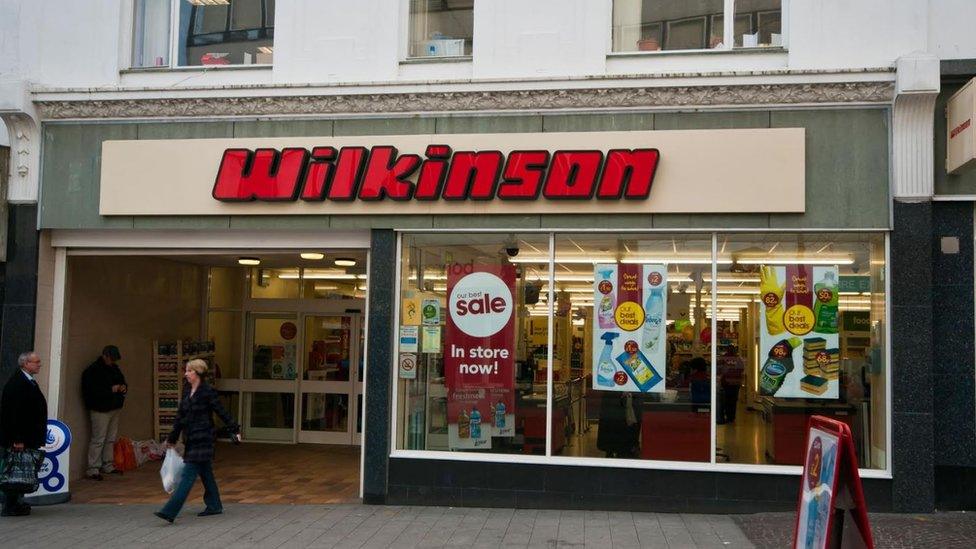
The first Wilkinson store was opened in 1930, and was rebranded Wilko in 2014
James Kemsey Wilkinson opened the first Wilkinson store in 1930 on Charnwood Street in Leicester
By 1999 there were 152 Wilkinson stores open around the UK with an annual turnover of £564m
In 2014 Wilkinson rebranded to Wilko
The company is still owned by the family
Source: Insightdiy

You may also be interested in:
Are Wilko's demands exceptional?
Like many high-street chains, Wilko has been under pressure in recent years, although in May it reported it had returned a profit, largely thanks to cost-cutting, external.
Nelson Blackley, from the National Retail Research Knowledge Exchange Centre, said while he had sympathy with the chain's workers, online shopping was putting pressure on retailers to be as flexible as possible.
"The move by Wilko is to an extent a 'sign of the times', with an increasing percentage of UK retail sales now taking place online, and providing consumers with instant access to millions of products 24 hours a day, 365 days a year," he said.
"Whether opening earlier, or staying open later the vast majority of retailers now also trade every day of the week."

In May Wilko reported it had returned a profit, largely thanks to cost-cutting
Mr Blackley said the requirement for flexibility extended to store staff.
"With many consumers being off work and wanting to shop at weekends, it's more difficult for employers to provide two consecutive days off each week," he said.
Mr Blackley said not all stores were giving in to online pressures though.
The family-owned toy store The Entertainer still refuses to open on Sundays to give staff quality family time.
What do customers say?
Leicester's main city centre store is now near the bus station on Charles Street.
Wilko regular John Denholm said he shopped at the store at least once a week for household cleaning products.
He said: "Staff have to be flexible if you work in the retail sector.
"It's modern living unfortunately."
The 68-year-old retired estate agent added: "The square footage of [the store] means there's a need for it to be open seven days a week."
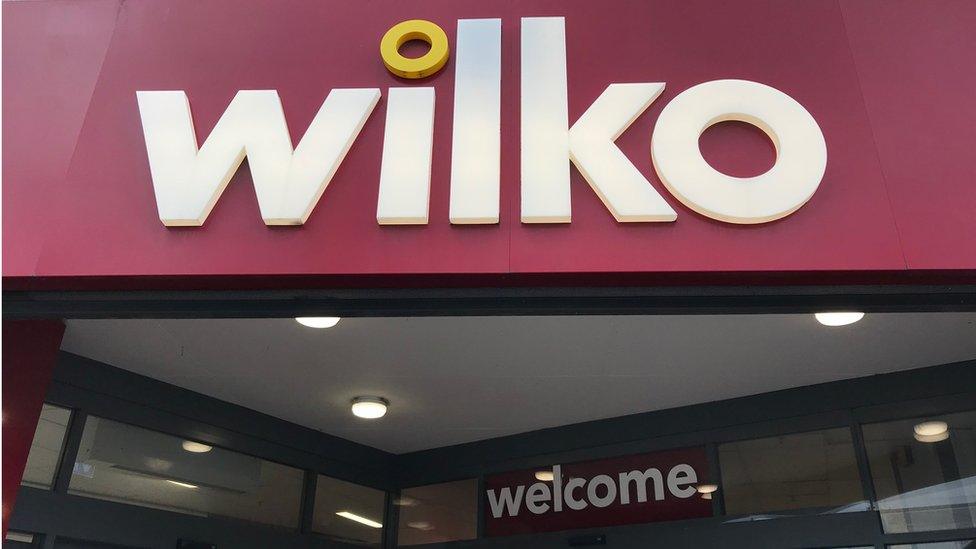
Leicester's main city centre Wilko store is now near the bus station on Charles Street
Fergus McBeath and Ocea Emery, both 22, shop at the Leicester store about twice a month for pet supplies and shampoo.
Mr McBeath, who works at a branch of coffee shop chain Starbucks at a service station, said: "We all have to work on the weekends sometimes.
"I work in a motorway service station and my hours are all over the place.
"I've left jobs because of the hours, if you don't like the hours you should find a new job."
Ms Emery, a student, was more sympathetic.
"I get that it's tough, especially when you're trying to balance a family life, it'd be good if there was an added incentive."
But she agreed that the shop should be open seven days a week and said: "It needs to be convenient for people when they get off work."

Follow BBC East Midlands on Facebook, external, Twitter, external, or Instagram, external. Send your story ideas to eastmidsnews@bbc.co.uk, external.
- Published4 September 2019
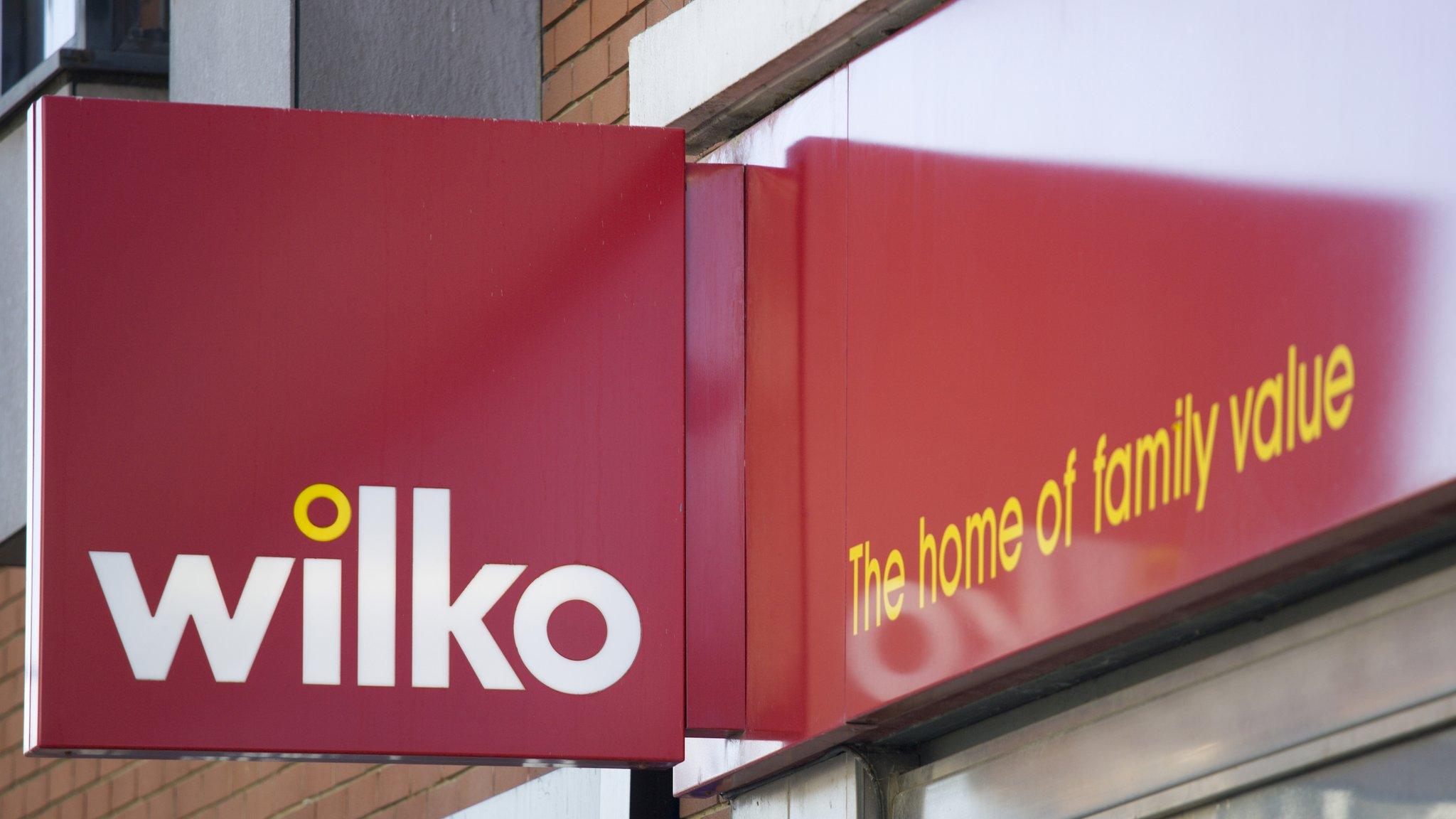
- Published11 August 2017
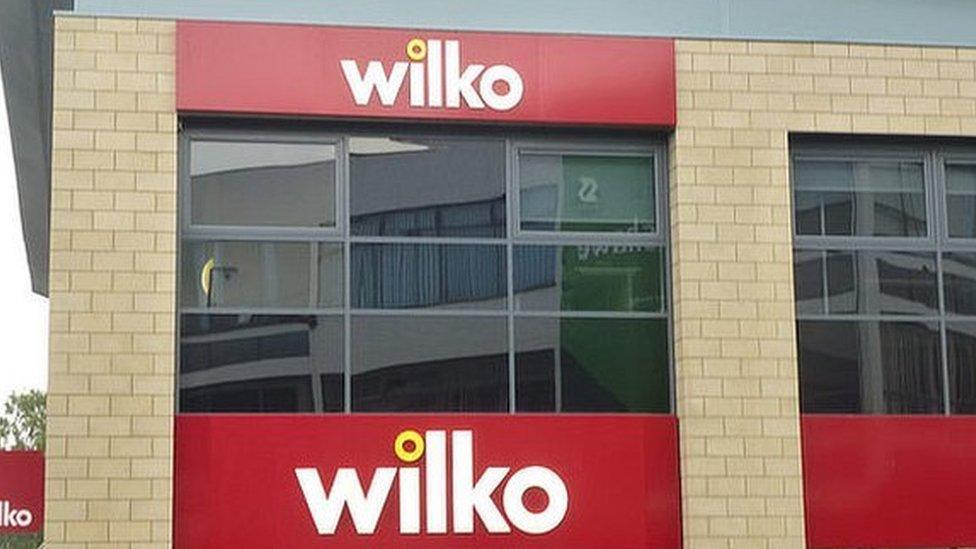
- Published13 January 2015
